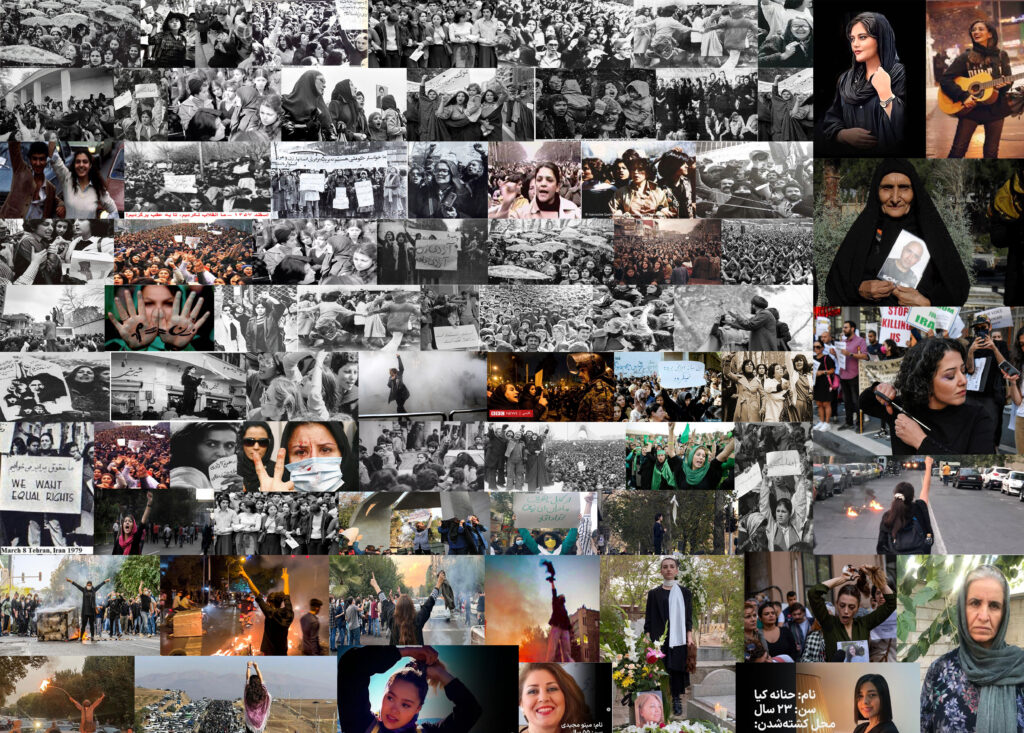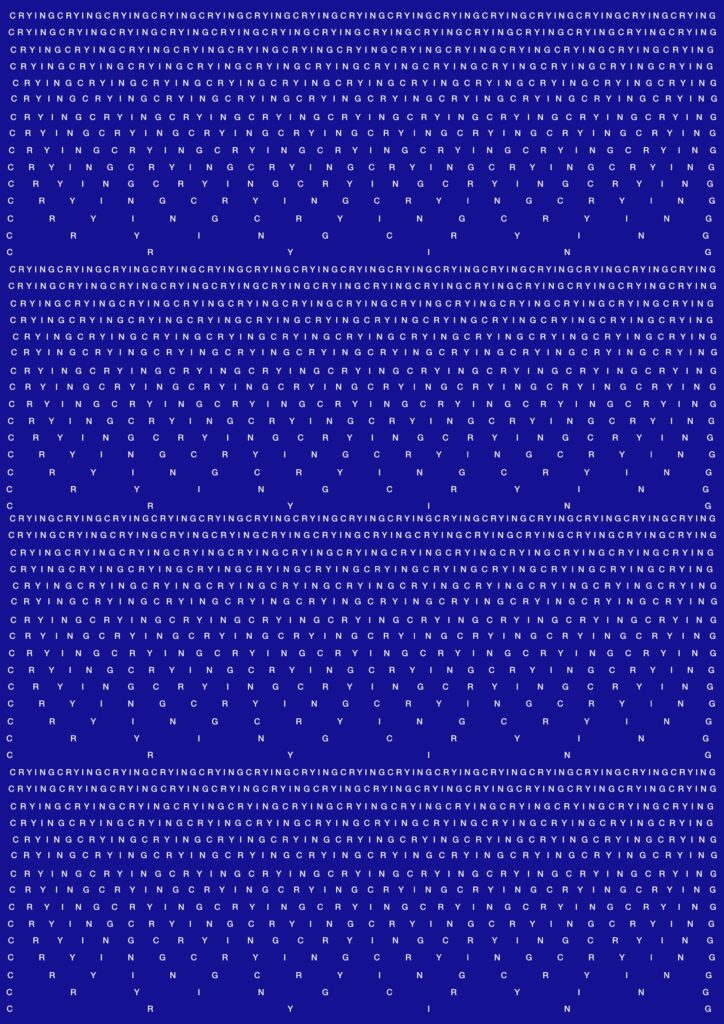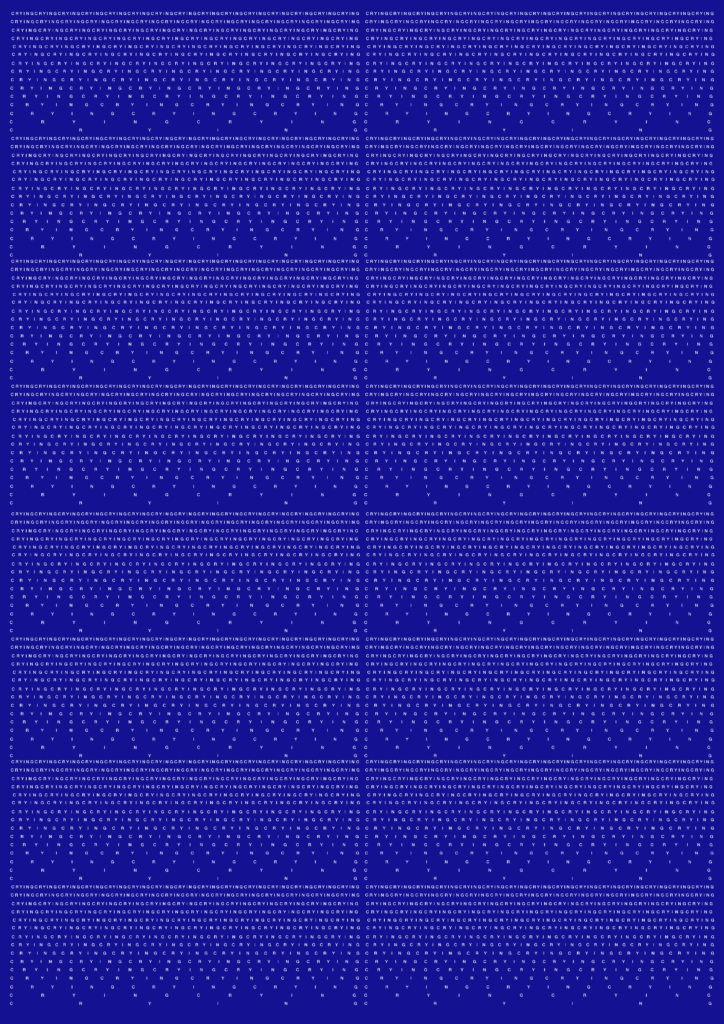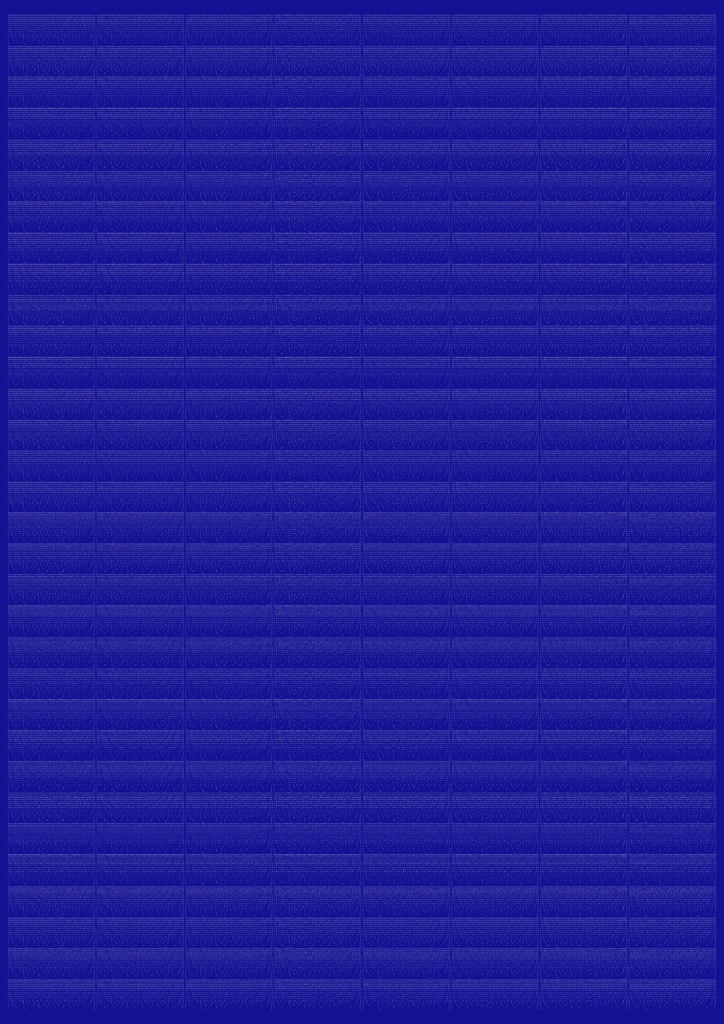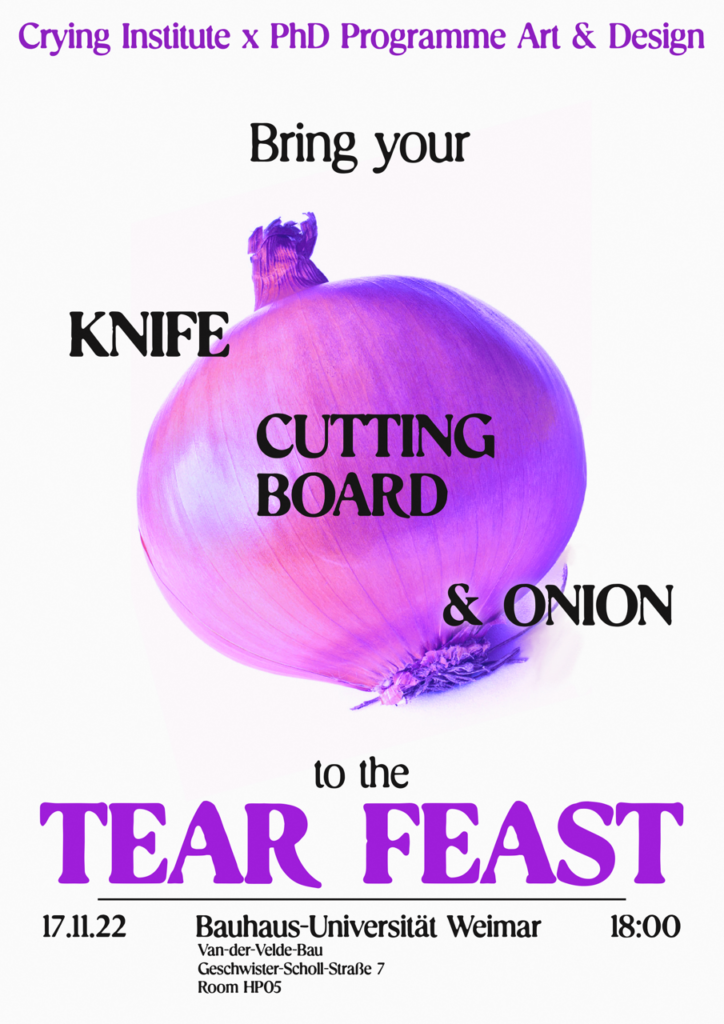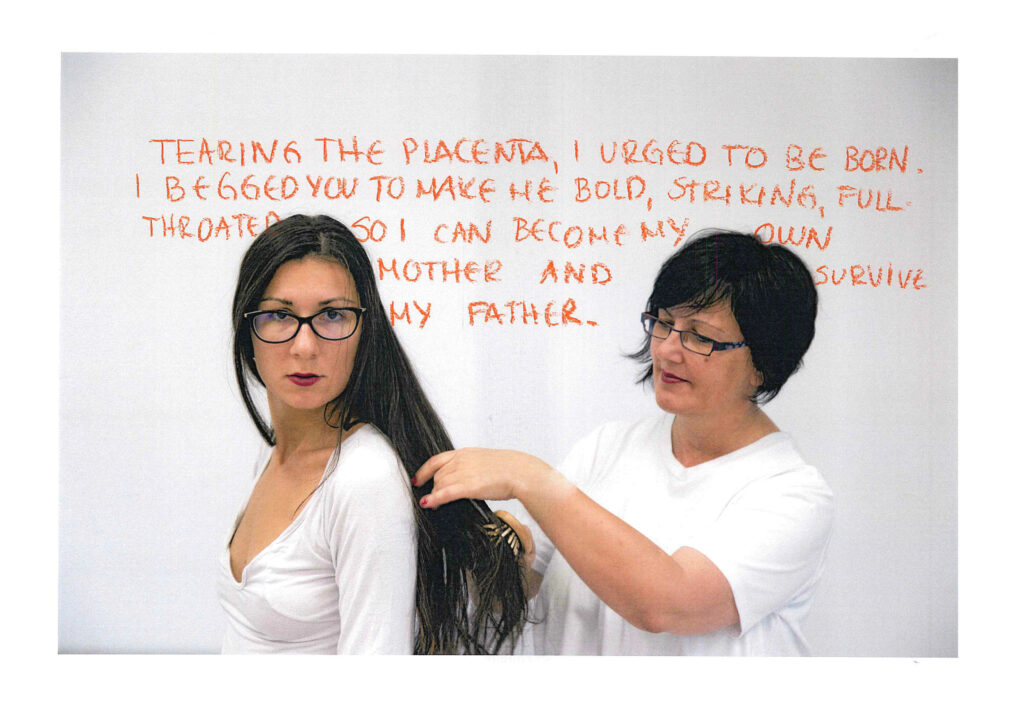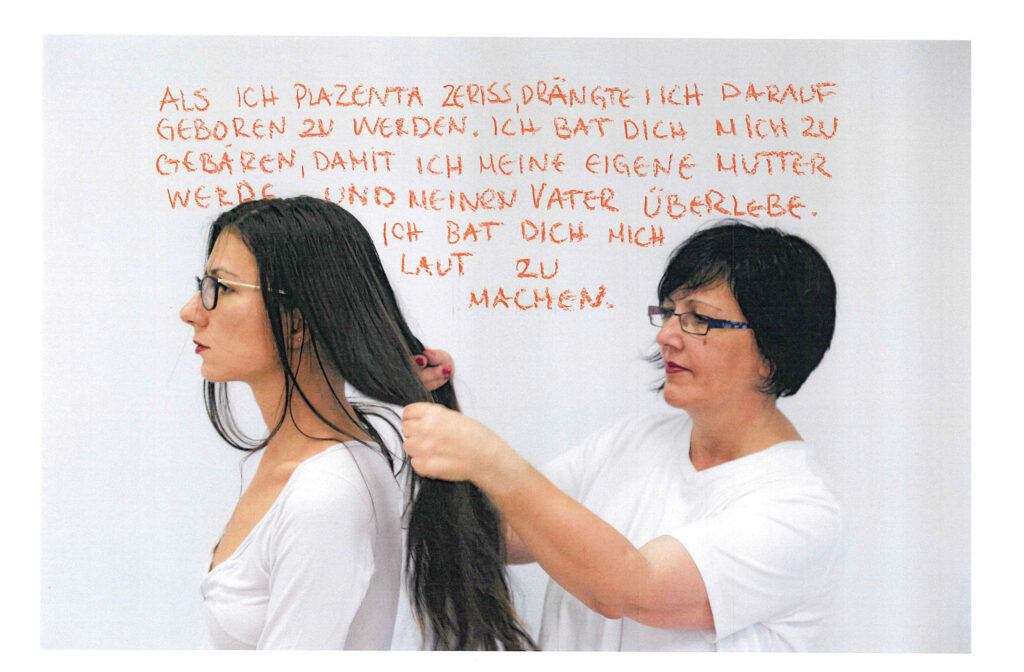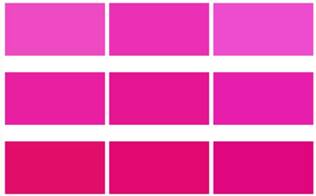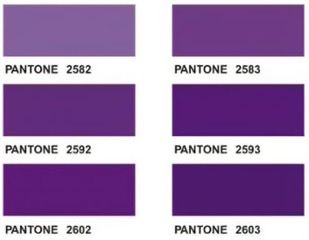November 30, 2022, Campus Bauhaus University Weimar
S p e a k e r
Today, November 30, 2022 is the 76th day of the Iran Revolution, almost 11 weeks. Protests in 150 cities have resulted in 445 deaths, including 63 children, and 18,000 detainees since the beginning. And the anger grows with each day, and with it the determination.
C h o i r 1
We are Mahsa (22 years old), Sarina (17 years old), Nika (16 years old), Khodanoor (24 years old), Kian (10 years old) Hasti (7 years old). We are Navid, Hossein, Behnam …
C h o i r 2
We all know about the violent struggles in Iran. At the protest for Mahsa Amini in Weimar on October 11, we were 350 people – an impressively diverse crowd, equal to 20,000 people on the streets in Berlin. For a moment, we were all standing in solidarity. But that moment passed for many of us because it is easy to ignore injustice that does not affect us directly. This is called privilege.
S p e a k e r
The protests in Iran are directed against both the theocratic regime in Iran and the living restrictions dictated by the regime. For example, in the form of forced veiling. In Iran, women struggle to move freely without being beaten, arrested or killed for it. Meanwhile the demonstrators demand „death to the dictator“. It’s about a lot, it’s about everything. It is about the overthrow of the Islamic Republic as a social order. It is about the transformation of Iran into a secular state.
C h o i r 2
Those of us here in Weimar who have family ties or friends in Iran are confronted each and every day with devastating news about the traumatising and deadly consequences of the war against the Iranian people, waged against them by their own government. Those of us don’t have the option to protest and then forget. The rest of us should at least ask: How are you?
C h o i r 1
This is me talking, someone in between. An insider who is outside; an outsider who tries to speak up. So far there have been so many political statements. We are raising our voice. We are speaking our demands for justice and freedom. We want to be heard. We demand change, we demand action not just promises.
S p e a k e r
The courageous Iranian people have exerted their right to civil disobedience, and organized strikes, sit-ins, and other acts of collective remembrance to protest against wide-ranging human rights violations in Iran and for their rights to freedom. In return, they have to bear the current consequences, for themselves and for their families. These can be arbitrary arrests, detentions or expulsions, including violence and death.
C h o i r 1
We looked for freedom on the streets of every land. We found each other in different countries. We are here, we are everywhere. Every morning we woke up and we wished for freedom. We screamed our wish to every corner of every street. We are fighting for freedom.
M o t h e r
If I could hold you one more time, I would hold you forever, not let you leave the house, keep you away from the street.
My daughter, your exams have passed, no results for you there on the wall of the subordinate and oppressed.
My daughter has awakened all sleeping creatures and set them on fire.
She raised scissors in the face of the giant and she cut her hair. Her hair the source of his power, she cut it.
My daughter grew bigger than the whole world.
Our little women lose their sanity to survive those insane giants.
I know loss well now, do you know loss? Do you feel it? Do you miss your children after they go to school? My children demonstrate in school.
My intelligent children beat you all in the battle of knowledge. They beat you all in the battle of bravery and in the battle of love.
How could the world forget the death of my daughter? My children?
I know leaders, they are insane giants, but what about the people! Do you know loss? Do you feel it?
Daughter, I have sacrificed you without knowing it. You have become a bait to the chain of change and resistance. It was supposed to be me.
The world has sacrificed you, as they have sacrificed other heroes before you.
We who experienced all kinds of instability and terrorism, all kinds of greed and alienation.
We feel we are doomed to die, and be forgotten.
Our dictators do not represent us, they represent the greed of other nations in our resources and lands.
Deals or wars.
Guns and oil.
And while our people suffer one of the two, the world turns its back.
Must we all taste loss and oppression to be united, my daughter.
C h o i r 2
In Weimar, welive in relative safety. We have the privilege of living in a country that protects our right to dissent, to assemble, to protest. Most of us have the privilege of studying in an educational system that offers freedom of thought and tuition fees. That in itself means that we have a number of privileges we may not be aware of.
C h o i r 3
What do we do with these privileges? The Iranian demonstrators have no seat in the Human Rights Council in Geneva, they have no voice in the United Nations. But we do. That’s why Germany, together with 50 other countries, convened the special session on Iran.
S p e a k e r
At the end of last week, the UN Human Rights Council called for an end to the violence and condemned the state security forces’ crackdown on protesters in Iran. The Council passed a resolution to independently investigate the Iranian government’s violence against the protest movement. It was the first time that the Council voted overwhelmingly in favour of establishing a fact-finding mission to investigate human rights violations in Iran.
C h o i r 3
The message should be: We are not just watching. We also go where we can use our voice to do something for the rights of Iranians.
C h o i r 1
We want the world to stop shaking hands with terrorists who are taking people as hostages. We do not need help from other governments, we want them to stop helping our enemies. We want them to stop validating them. Deport them from your countries, stop making arrangements with them.
C h o i r 2
We also need to ask ourselves personally: Are we doing enough to support the Iranian revolution? And if we are not: Why? No matter which resources we have to support this struggle for freedom: There is always something we can do.
C h o i r 3
First of all: We join the expressions of solidarity.
A l l
We strongly condemn all forms of arrest, intimidation and repression by the injustice regime. We demand an immediate halt to the executions. We demand a stop to the military escalation, the firing of missiles into the provinces of Iran and the militarisation to repel the protests. We demand the immediate and unconditional release of all political detainees. We demand an immediate stop to the systematic rape in prisons, a violence that has always been part of the repression and is now becoming public. We demand disclosure of abuse, torture and death in detention.
A l l
We demand for our women friends the dissolution of the moral police and measures so that the equality of the sexes is guaranteed. We demand respect for human dignity and human rights. We join: Woman. Life. Freedom.
C h o i r 2
And beyond that? What can and must we do ourselves? We can learn to be affected and to remain affected. We can confront the difficult feelings triggered by the events. We can look after those of us who are in constant worry about their loved ones. We can remember of the Iranian fight for freedom when others forget about it in the global or local struggles for justice.
C h o i r 1
Remember us with our courage. We are documenting our death. We are getting raped. We are getting tortured, we are in prison, we are censored, yet we don’t remain silent. We are brave. Our blood is out there and we are still fighting on bloody streets.
C h o i r 2
Our love and rage connect us with each other, despite the differences of our situations. United, we are the thorn in the flesh of the system, the axe for the frozen sea within ourselves.
S p e a k e r
The protests have a revolutionary character, because they are a movement of the whole Iranian society. But the revolutionaries must know that they can count on the support of the democratic states now and for the time after. We must amplify the calls of the people of Iran for freedom and equality so that they are heard everywhere. Then the oppressed people of Iran will not rest.
C h o i r 1
We witness our brother and sisters murder, we say their names. Say our names. Remember us. We are Mahsa (22 years old), Sarina (17 years old), Nika ( 16 years old), Khodanoor (24 years old), Kian (10 years old) Hasti ( 7 years old). We are Navid, Hossein, Behnam … Say our name in the name of freedom. This is not just a revolution for bread, we are speaking the unspoken. After so many years of fear and threat, we are calling for freedom. In the name of woman, life, freedom.
A l l
WOMAN. LIFE. FREEDOM.
